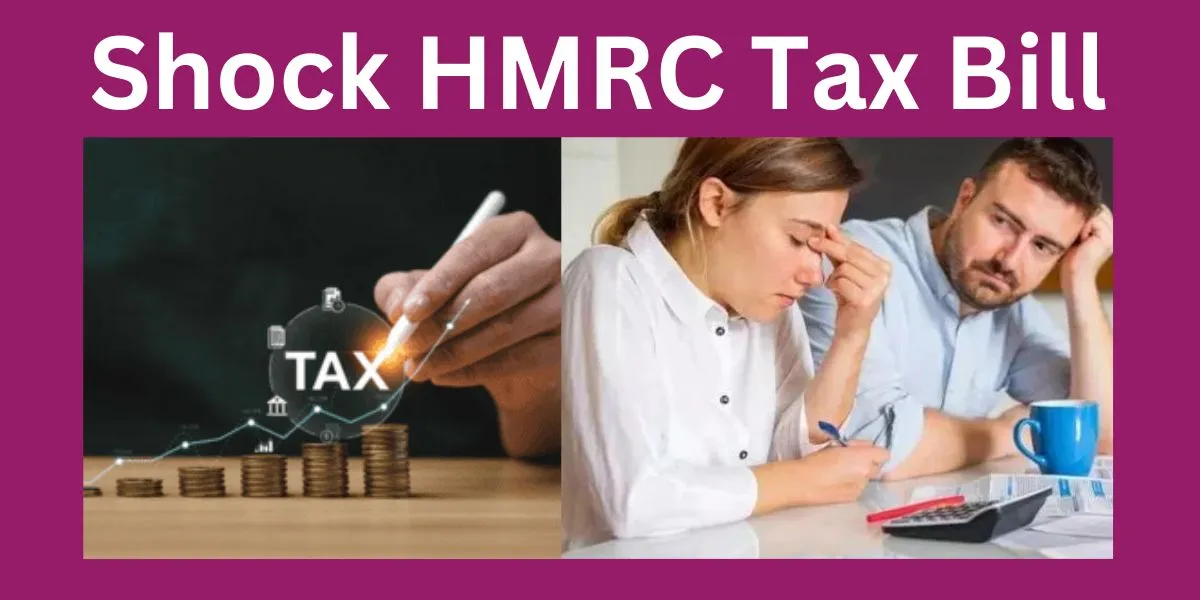For many of us, having a savings account is the simplest way to keep our hard-earned money safe while earning a little interest on the side. However, a looming “shock” tax bill from HMRC (Her Majesty’s Revenue and Customs) may soon hit millions of people in the UK. If you’re among those with a healthy amount stashed away in a savings account, it’s crucial to understand how this tax could affect you—and what you can do about it.
What Is The HMRC Savings Tax All About?
You might be thinking, “Wait, tax on my savings?” Yep, that’s exactly what’s happening. Many people have enjoyed tax-free interest on their savings for a while now, but things are changing. Due to a combination of rising interest rates and the personal savings allowance (PSA) thresholds not keeping up, more and more savers are being dragged into paying tax on their interest.
Why Is This Happening?
In recent years, savings interest rates have been quite low, meaning most people didn’t have to worry about paying tax on their savings interest. However, as interest rates rise—thanks to central banks’ attempts to curb inflation—the amount of interest you can earn on your savings has increased. Unfortunately, this also means more people are exceeding their personal savings allowance, leading to tax bills.
What Is The Personal Savings Allowance (PSA)?
The personal savings allowance was introduced in 2016 to allow most savers to earn a certain amount of interest tax-free. It was designed to ensure that everyday savers wouldn’t have to worry about tax on the small amount of interest they earned. Here’s how it works:
- Basic-rate taxpayers (earning up to £50,270) can earn up to £1,000 in interest each year without paying tax.
- Higher-rate taxpayers (earning between £50,271 and £150,000) get a £500 allowance.
- Additional-rate taxpayers (earning over £150,000) don’t get any personal savings allowance.
If your interest exceeds your allowance, HMRC will tax the excess at your marginal income tax rate, which could be 20%, 40%, or even 45%.
Rising Interest Rates and the PSA
When the PSA was introduced, the Bank of England’s base interest rate was just 0.5%, and savings rates were similarly low. It made sense that few people would earn enough interest to exceed the PSA. Fast forward to today, and with interest rates increasing rapidly, more and more savers are finding themselves with a tax bill on their hands.
Why Are People Facing a “Shock” Tax Bill?
Now, you might be wondering, “If this tax has been around since 2016, why is everyone suddenly shocked?” The simple answer is rising interest rates. For years, interest on savings was so low that only a small percentage of people exceeded their PSA. But now, with interest rates climbing, even those with modest savings are starting to see their interest exceed the allowance.
This means that millions of savers, who haven’t paid any tax on their savings for years, are in for a rude awakening when they get a notice from HMRC telling them they owe tax.
How Much Could You End Up Paying?
The exact amount you’ll owe depends on several factors, including how much interest your savings are generating and your income tax band. Here’s a quick breakdown of what you might pay based on your taxpayer status:
- Basic-rate taxpayers: If you earn more than £1,000 in interest, you’ll pay 20% tax on the excess.
- Higher-rate taxpayers: If you exceed your £500 allowance, you’ll pay 40% tax on any interest above that limit.
- Additional-rate taxpayers: You’ll pay 45% tax on all interest earned, since you don’t have a personal savings allowance.
Example: Basic-Rate Taxpayer with £20,000 in Savings
Let’s say you have £20,000 saved, earning 5% interest. That gives you £1,000 in interest. As a basic-rate taxpayer, that’s within your PSA, so no tax is due. But if interest rates rise to 6%, you’ll now earn £1,200 in interest—meaning you’ll owe tax on the £200 excess. At a 20% rate, that’s a £40 tax bill. Not devastating, but still a surprise for many.
What Types of Accounts Are Affected?
Not all savings accounts are created equal, and not all of them will expose you to a tax bill. Here’s a rundown of what’s likely to be affected:
Easy-Access Savings Accounts
These are the most common types of savings accounts and are often the most likely to generate taxable interest. With easy access to your money, it’s convenient for everyday savers but can quickly push you over your PSA if you have a sizable balance.
Fixed-Rate Bonds
Fixed-rate bonds typically offer higher interest rates because you lock your money away for a set period. If rates have climbed since you opened your bond, you could be earning much more interest than when you first invested, potentially triggering a tax bill.
ISAs (Individual Savings Accounts)
One way to avoid this tax bill altogether is to use an ISA. All interest earned within an ISA is tax-free, meaning you won’t need to worry about exceeding your PSA. If you haven’t already opened one, it might be worth considering.
How HMRC Collects the Tax
If you do exceed your PSA, HMRC will collect the tax automatically through the PAYE (Pay As You Earn) system. They adjust your tax code, reducing the amount of tax-free income you can earn from your job or pension, effectively clawing back the tax on your savings interest throughout the year.
Self-Assessment
For those not on PAYE or with more complex financial situations, you may need to declare your savings interest through a self-assessment tax return. It’s not as daunting as it sounds, but it’s an extra step many people aren’t used to taking.
Can You Avoid This Tax Bill?
Nobody likes paying more tax than they have to, so what can you do to avoid getting hit with a surprise bill?
Open or Maximize Your ISA
As mentioned earlier, ISAs offer a tax-free savings option. You can contribute up to £20,000 each tax year into ISAs, so if you’re not using this allowance, you’re missing out on a simple way to avoid paying tax on your savings interest.
Spread Your Savings
If you’re worried about exceeding your PSA, consider spreading your savings across different accounts or splitting them between yourself and a partner. Remember, the PSA is individual, so if both you and your spouse have savings, you each get a separate allowance.
Keep an Eye on Interest Rates
As interest rates rise, keep an eye on how much interest your savings are generating. You might be used to thinking, “My savings don’t earn much,” but with today’s rates, that’s changing fast.
Conclusion
For millions of savers, the idea of paying tax on their savings is a shock, especially after years of earning minimal interest. With rising interest rates, it’s more important than ever to understand how the personal savings allowance works and how it affects you. By taking steps now—such as using an ISA or spreading your savings—you can minimize the risk of facing an unexpected tax bill from HMRC.
FAQs
1. What is the personal savings allowance?
The personal savings allowance allows basic-rate taxpayers to earn £1,000 in savings interest tax-free, while higher-rate taxpayers can earn £500 tax-free.
2. How does HMRC collect the savings tax?
HMRC collects the tax through the PAYE system by adjusting your tax code or through self-assessment if you’re not on PAYE.
3. Are all savings accounts affected by the savings tax?
No, ISAs are not affected by the savings tax because all interest earned in an ISA is tax-free.
4. Can I avoid paying tax on my savings?
Yes, you can avoid paying tax by using an ISA, spreading your savings, or keeping your interest earnings within your PSA limit.
5. Why are more people facing a tax bill now?
Rising interest rates are causing more savers to exceed their personal savings allowance, leading to unexpected tax bills from HMRC.










